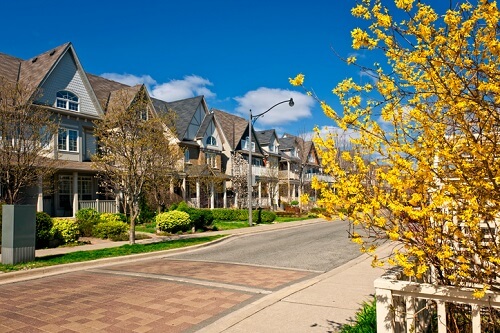The Toronto Real Estate Board's February numbers are out, but do they tell the whole story?

According to the Toronto Real Estate Board, sales are down significantly in Canada’s largest city, and so are prices, but do their numbers tell the whole story?
According to Ron Butler of Butler Mortgage, a lot of the doom and gloom pervading discussions about Toronto real estate ignore a salient fact: After peaking, the market is returning to normalcy.
“It’s down from an all-time record unit of sales,” said Butler. “It’s down from the highest peak, so all that’s going to happen this year is it will look like the numbers in 2015. Sales are still happening; they’re just not happening at a record level like they were years ago. On my desk, I have seven purchases—and that’s from today so far. All that’s happening is normalcy.”
The numbers just released by TREB revealed year-over-year sales in February fell 34.9%—that’s a difference of 2,780 transactions—and average price also dropped 12.4% to $767,818. However, Butler believes Toronto’s real estate market is aberrant.
“If we go back to February and March of last year, the year-over-year price increase was 30%. If you bought a house in March, you probably paid 30% more than you would have 12 months earlier. Is there any possibility that could continue? The answer is a resounding ‘no.’ Thirty percent in real estate is crazy, so this is just normalcy,” said Butler, adding that January and February are notoriously slow sales months.
While what goes up must come down, John Bargis, owner of CIMBC member Mortgage Edge, believes TREB’s numbers are the manifestation of stress testing mortgages at 200 basis points.
“Housing prices will also drop by virtue of the fact that you’re cutting out a number of potential purchasers and refinances,” said Bargis. “I think this is the beginning of something much bigger. The one thing that’s immeasurable is consumer sentiment, which is starting to take hold.”
The consensus on interest rates is that they will keep rising, but by how much is what Bargis thinks will determine whether or not TREB starts reporting sale price deficits larger than 12.4%.
“It also depends on how much impact the interest rates will have—that’s an unknown,” he said. “We are in an increasing interest rate environment, but how much are they expected to go? The stress test is in place, and with a further significant increase in interest rates, the impact will be much larger. If the interest rates stabilize, I’m going with a stabilization of the market, but if they continue to climb, we’ll be in the territory of—not necessarily a crash—but a pullback in housing prices in major areas of up to 20-25%. You’re already at 12% in the GTA, and that’s a big number.”



